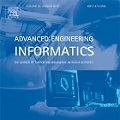
Bayesian optimisation is a sample-efficient search methodology that holds great promise for accelerating drug and materials discovery programs. A frequently-overlooked modelling consideration in Bayesian optimisation strategies however, is the representation of heteroscedastic aleatoric uncertainty. In many practical applications it is desirable to identify inputs with low aleatoric noise, an example of which might be a material composition which consistently displays robust properties in response to a noisy fabrication process. In this paper, we propose a heteroscedastic Bayesian optimisation scheme capable of representing and minimising aleatoric noise across the input space. Our scheme employs a heteroscedastic Gaussian process (GP) surrogate model in conjunction with two straightforward adaptations of existing acquisition functions. First, we extend the augmented expected improvement (AEI) heuristic to the heteroscedastic setting and second, we introduce the aleatoric noise-penalised expected improvement (ANPEI) heuristic. Both methodologies are capable of penalising aleatoric noise in the suggestions and yield improved performance relative to homoscedastic Bayesian optimisation and random sampling on toy problems as well as on two real-world scientific datasets. Code is available at: \url{https://github.com/Ryan-Rhys/Heteroscedastic-BO}
翻译:Bayesian优化是一种抽样高效的搜索方法,对于加快药物和材料的发现程序有着巨大的希望。但是,在Bayesian优化战略中,一种经常被广泛关注的建模考虑是代表偏执性偏偏偏偏偏偏偏偏偏偏偏偏的偏移性偏移性不确定性。在许多实际应用中,可取的做法是识别低偏移噪音的投入,其中的一个实例可能是一种物质构成,这种物质构成始终显示强大的特性,以应对吵闹的制造过程。在本文中,我们提议一种超正振动性巴耶西亚优化方案,能够在整个输入空间中代表并尽量减少疏离性噪声。我们的方案采用了一种超正振动性高振动性标的替代模型,同时对现有获取功能进行两种直接的调整。首先,我们扩大预期的改进(AEI)到超振荡性能的设置,第二,我们引入了固态噪动性噪音预期的改进(ANPEI)。两种方法都能够对建议中的偏振动性噪音进行惩罚,并产生相对于可获取的随机性空间数据而改进的绩效。


